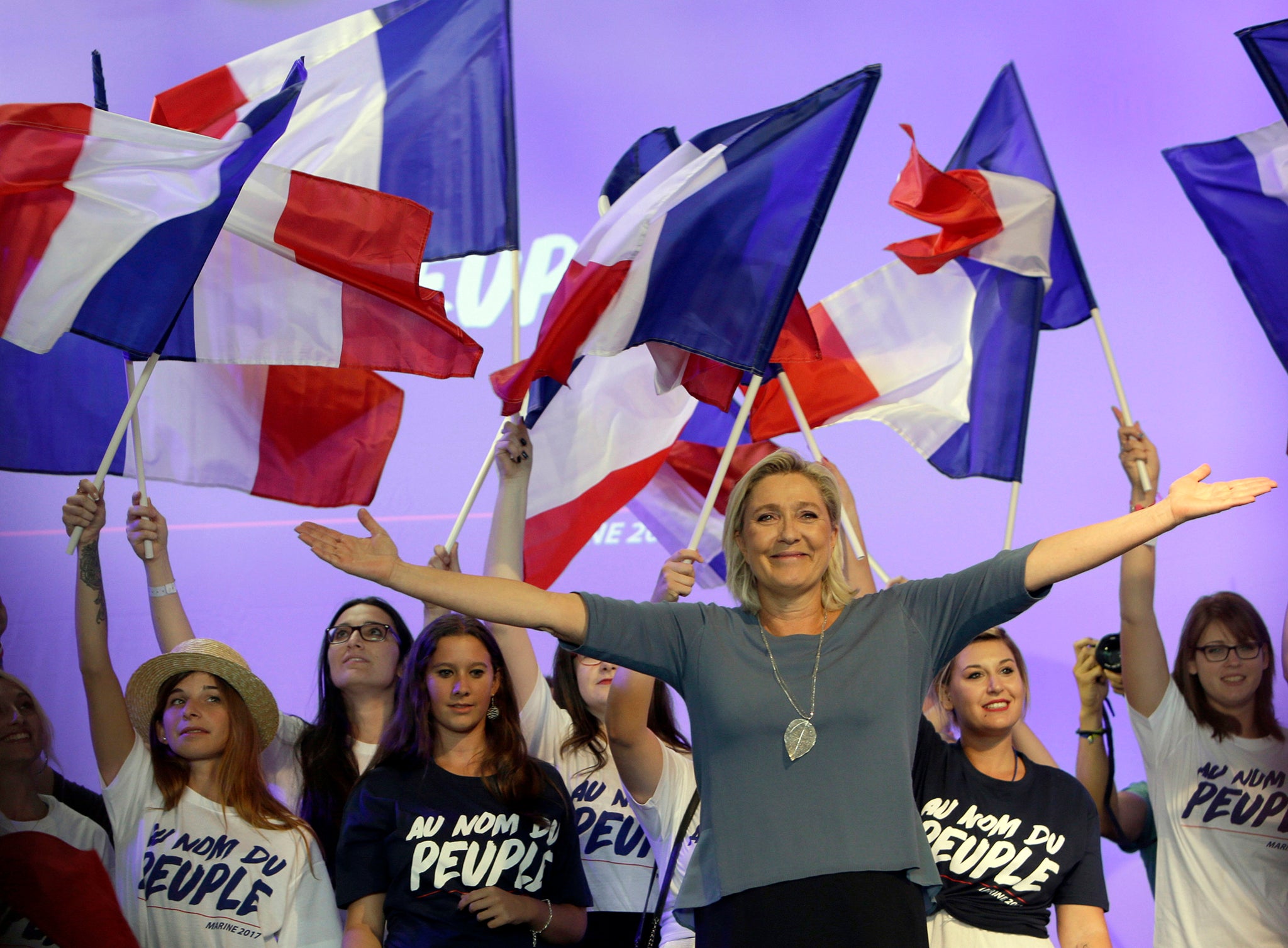Are we about to see a repeat of Donald Trump's shock victory in Europe?
Unlike Austria, France is a world power; and unlike in Germany, there is a figure on the far-right who has the rhetorical nous and longstanding knowledge of the political game necessary to present a realistic leadership bid. She may not have the novelty of Donald Trump, but Marine Le Pen senses that she can repeat the shock of his success

If Brexit put the wind up the European political establishment, Donald Trump’s election triumph in the United States has brought on a full-scale panic attack. It remains to be seen of course whether the two events are really connected in the way that those peddling anti-elite narratives like to suggest. Nevertheless, with important elections looming in several key EU countries, there is a sense that recent history in America and Britain could repeat itself on the continent.
The first test of the new European populism will come next month in Austria, with a rerun of presidential elections that were dogged by irregularities when first held earlier this year. Norbert Hofer of the far-right Freedom Party lost the original ballot by 31,000 votes – he will be hoping it is his supporters, rather than his opponents, who have been emboldened more by events in the interim.
A win for Mr Hofer would undoubtedly fuel the anti-immigration, nationalistic fire of Alternative for Germany (AfD), the party that has made such startling gains on the other side of the Austrian border since being established in 2013. The decision by Angela Merkel to seek a fourth term as Chancellor when the German people go to the polls next autumn is perhaps a sign of the seriousness with which the AfD’s challenge is being taken by leaders of the ruling Christian Democratic Union party. While controversy over her policy towards refugees arguably aided the AfD’s rise, Ms Merkel remains popular – and is widely regarded as having the best chance of stemming the populist tide.
Yet perhaps the biggest test of all for those who envisage the end of the existing liberal order will come in between Austria’s and Germany’s elections, when the people of France vote for a new President this coming April. Unlike Austria, France is a world power; and unlike in Germany, there is in the French Republic a figure on the far right who has the rhetorical nous and longstanding knowledge of the political game necessary to present a realistic leadership bid. She may not have the novelty of Donald Trump, but Marine Le Pen senses that she can repeat the shock of his success.
With the Socialist Party in a mess, most predictions point to a second-round run-off between Ms Le Pen, leader of the Front National (FN), and whoever leads Les Republicains (LR), France’s traditional centre-right party of government. Frontrunners to lead LR into next year’s election have included former President Nicholas Sarkozy, who has moved to the right in an effort to confound Ms Le Pen’s growing popularity. Alain Juppé, who was a deeply divisive prime minister in the 1990s, has taken a softer stance on the key subject of immigration. François Fillon, meanwhile, has presented himself as the flag-bearer for economic liberalism.
In any other circumstances, last week’s decision by former Socialist Emmanuel Macron to run as an independent candidate next year would have thrown France’s political establishment into disarray. As it is, his participation is viewed largely through the prism of how it might affect the anti-Le Pen vote. Indeed, at every turn it is the Front National leader who confronts the mainstream candidates and influences their thoughts. No wonder it is Ms Le Pen, rather than any of the seven candidates, who has dominated Les Républicains’ primary contest.
The storm clouds which are gathering over America as Donald Trump prepares to move into the White House are ominous enough, even if their shape is unrecognised in the US. Europe, however, still just about remembers the horror that can result from popular, untrammelled nationalism. Liberals across the continent will be rooting for whoever takes on Marine Le Pen in France next year and, for Ms Merkel in Germany, hoping that lightning does not strike twice.



Join our commenting forum
Join thought-provoking conversations, follow other Independent readers and see their replies